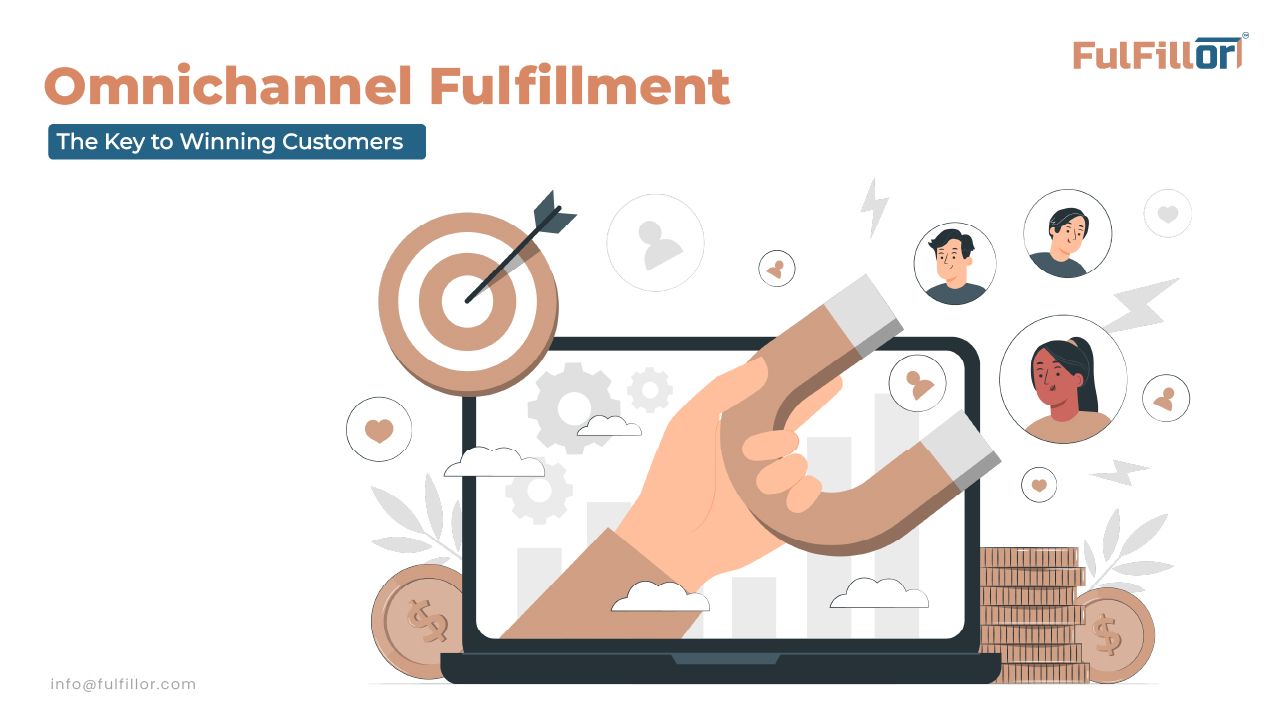Omnichannel Fulfillment: The Key to Winning Customers
In the technology-led, fast-paced business landscape, users demand seamless experiences across multiple channels. To meet these expectations, businesses have adopted the omnichannel fulfillment strategy. It is a process that includes different sales and distribution channels that help deliver an enhanced and efficient customer experience.
This process ensures that the products are delivered effectively and accurately, regardless of how and where the order is placed.
In this blog, we will fill you with an introduction to omnichannel fulfillment, alongside its benefits and challenges.
So, without any further ado, let's get started!
What is Omnichannel Fulfillment?
Omnichannel fulfillment refers to the process of fulfilling orders across various sales channels, including online stores, physical stores, social media platforms, mobile apps, third-party marketplaces, and more. It helps provide a seamless shopping experience to the users alongside helping you provide a consistent consumer experience. In addition, it helps manage and coordinate inventory across different sales channels, as well as order processing, shipping, and more. The key components include inventory management, order management systems, logistics and warehousing, flexible fulfillment options, last-mile delivery, returns management, etc.
Benefits of Omnichannel Fulfillment
With the demand for omnichannel fulfillment growing rapidly, businesses are adopting it at a fast pace alongside availing of the countless benefits it facilitates. Some of the benefits of omnichannel fulfillment are as follows -

- Competitive Advantage
- Enhanced Customer Satisfaction
- Increased Sales
- Optimized Inventory Management
- Increased Operational Efficiency
Competitive Advantage - The primary benefit of omnichannel fulfillment is that it helps you gain a competitive edge in the market as it helps you offer superior customer experiences alongside superior fulfillment options, thus resulting in businesses differentiating themselves from competitors in the market.
Enhanced Customer Satisfaction - Another benefit is that it helps in providing enhanced customer experience to the users which implies that the customers can make and receive orders from their preferred channels, which further leads to a more personalized and convenient shopping experience. This also helps in increased loyalty and value where the customers enjoy greater convenience and flexibility.
Increased Sales - It also helps in increasing sales by offering multiple channels for purchasing. It helps retailers capture sales that might have been lost due to stockouts or inconvenient purchasing options. This fulfillment strategy also helps in driving higher average order values and repeat purchases by offering a wide range of order fulfillment options, thus leading to attracting more customers and boosting sales.
Optimized Inventory Management - It also helps in optimized inventory management which helps the retailers to maintain the stock levels and reduce excess inventory. It also reduces the risk of overstocking and understocking alongside reducing the holding costs and fewer markdowns by fulfilling orders from the nearest location.
Increased Operational Efficiency - Another important benefit of omnichannel fulfillment is that it helps streamline the business processes with automation that further helps in increased productivity alongside reduced costs. It also eliminates manual errors, thus ensuring precision in tasks while allowing the employees to focus on the core activities.
Challenges to Consider
Now that you know about the benefits of omnichannel fulfillment, it is also important to learn about the challenges of the same.
Some of the challenges of omnichannel fulfillment are as follows -
-
The primary challenge in omnichannel fulfillment is the complexity of integrating various sales channels into a unified solution and ensuring seamless communication between systems. This can be a complex process and would require some investment in technology and infrastructure to support these integrations.
-
Anorher issue is achieving real-time inventory visibility across multiple channels is challenging, which might lead to inaccurate inventory data, thus resulting in stockouts, overstocking, and dissatisfied customers.
-
Another challenge is the efficient management of logistics which can be both time and cost-consuming thus leading to reduced or no profitability at all.
-
Another important issue to address is handling sensitive business data across multiple channels. This might require robust security measures and protocols to eliminate the risk of data breaches and ensure compliance with privacy regulations.
-
Another common challenge is handling returns and reverse logistics from different sales challenges can be a costly and time-consuming process. However, to overcome these challenges you need to invest in a suitable technology stack, which helps in optimizing their operations, and focus on providing exceptional customer service.
Concluding Thoughts
To sum it up, omnichannel fulfillment has been the need of the hour as it not only helps businesses get a unified view but also helps in providing a seamless customer experience.
So, if you too are looking for the perfect solution for your business then Fulfillor is the one!
A centralized order fulfillment solution that helps you streamline all your business needs with real-time visibility and increased customer satisfaction.
Schedule a Free Demo with us Now and get customized solutions tailored to your unique business needs!


